Biometric sensors can track pedestrian stress in real time, but may not always match self-reports. Electrodermal activity captures quick stress spikes, while heart rate and gaze reflect longer-term stress.
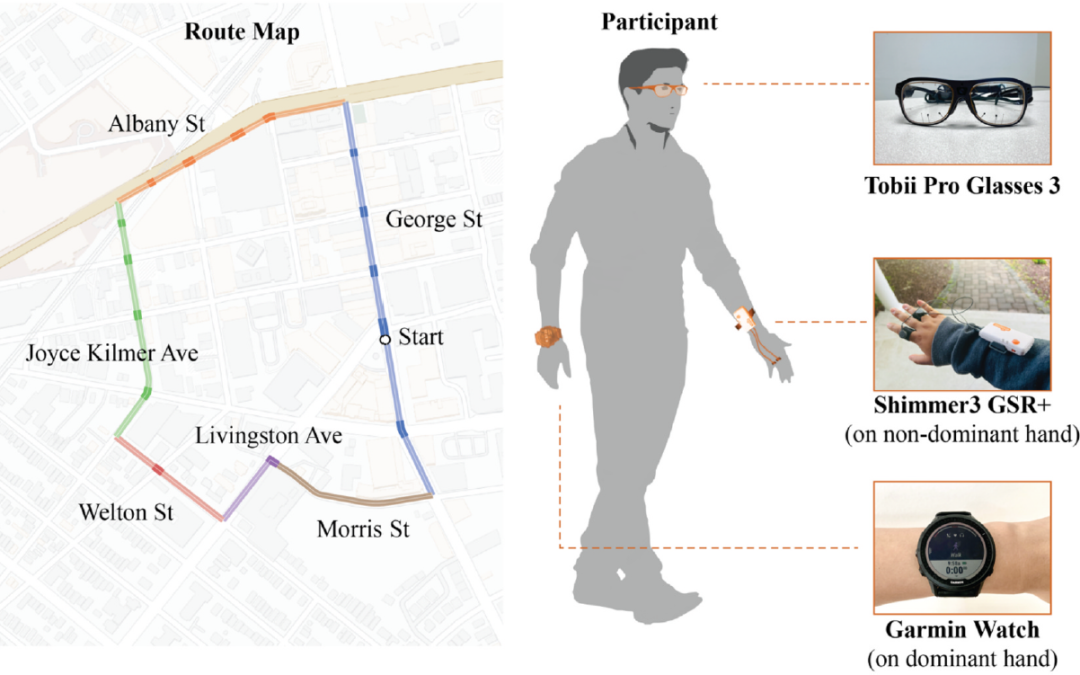

Biometric sensors can track pedestrian stress in real time, but may not always match self-reports. Electrodermal activity captures quick stress spikes, while heart rate and gaze reflect longer-term stress.
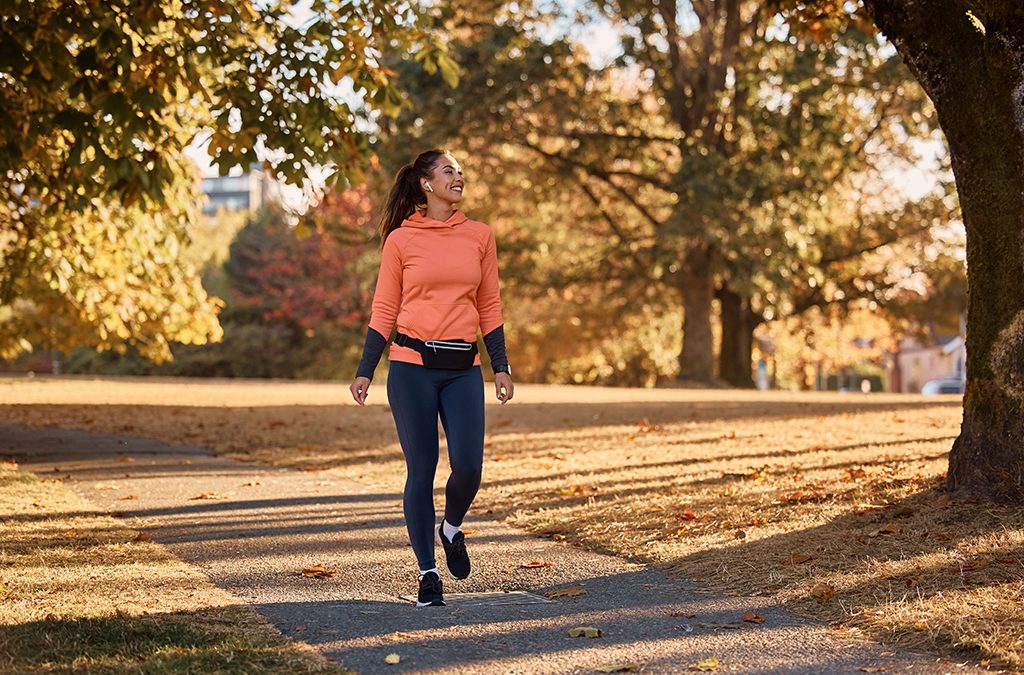
In our study of the Nurses’ Health Study 3, we found that momentary street-view exposure to trees and grass was linked to slightly lower physical activity, while exposure to other greenspace like flowers or fields was associated with increased activity, with variations by season, region, and neighborhood socioeconomic status.
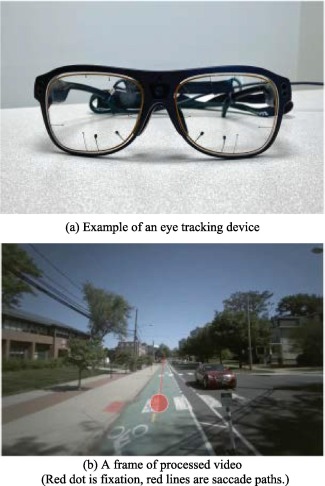
With improved portability and affordability, eye tracking devices have facilitated an expanding range of cycling experiments aimed at understanding cycling behavior and potential risks.

We examine who can work from home during the pandemic and whether this behavior will persist post-pandemic by conducting two representative online surveys in New Jersey.
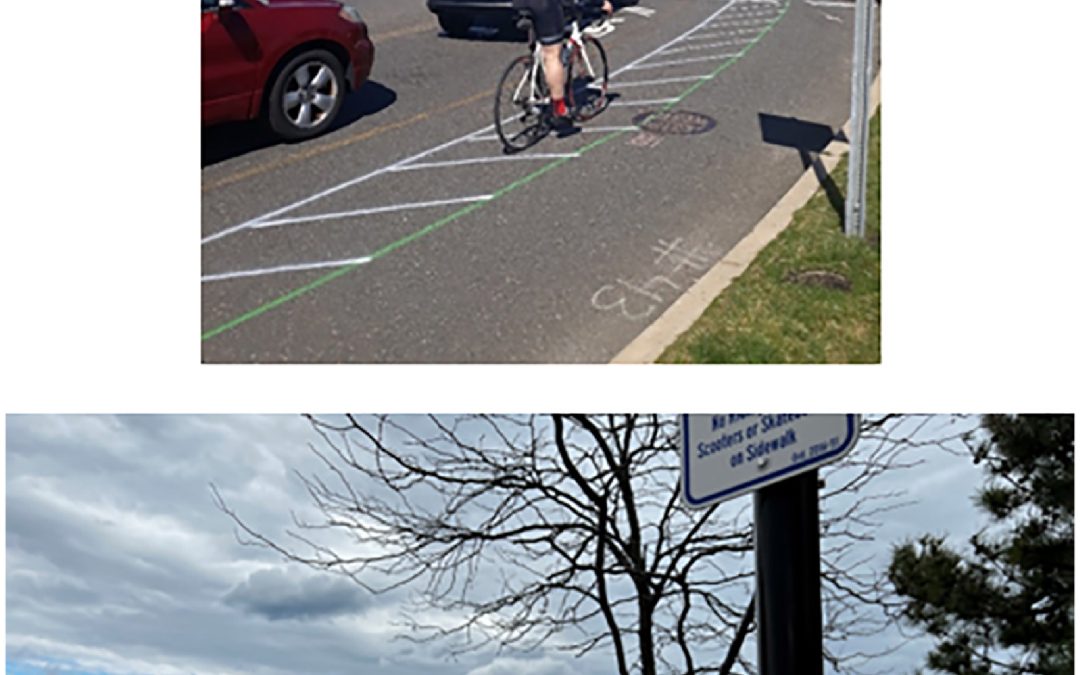
A team of Rutgers researchers led by VTC’s Hannah Younes analyzed the effect of a bicycle lane on traffic speeds using computer vision techniques.
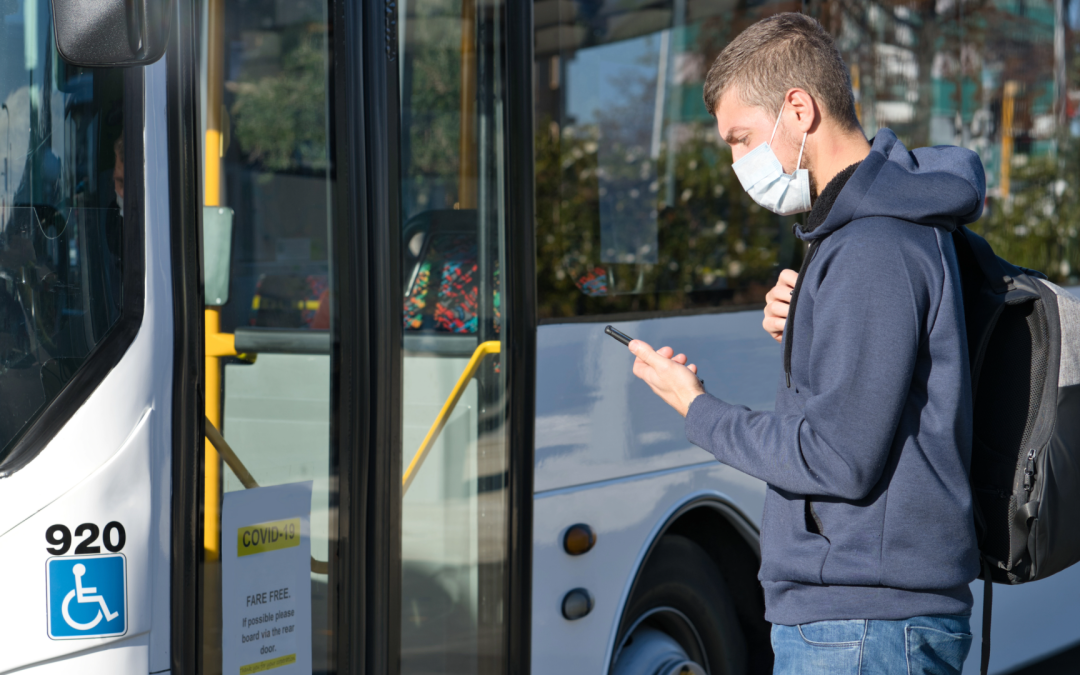
This work examines how transit agencies used Twitter during the COVID-19 pandemic to communicate with riders and how the content and general activity influence rider interaction and Twitter handle popularity.
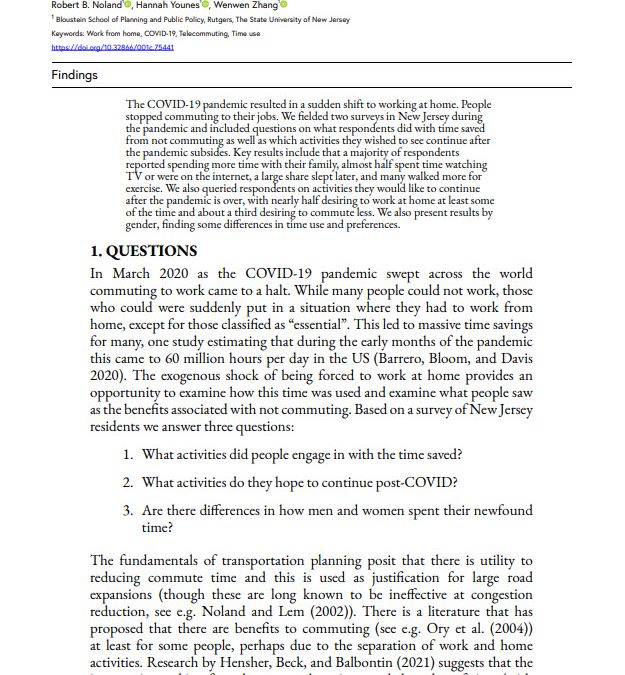
The researchers fielded two surveys in New Jersey during the pandemic and included questions on what respondents did with time saved from not commuting as well as which activities they wished to see continue after the pandemic subsided.
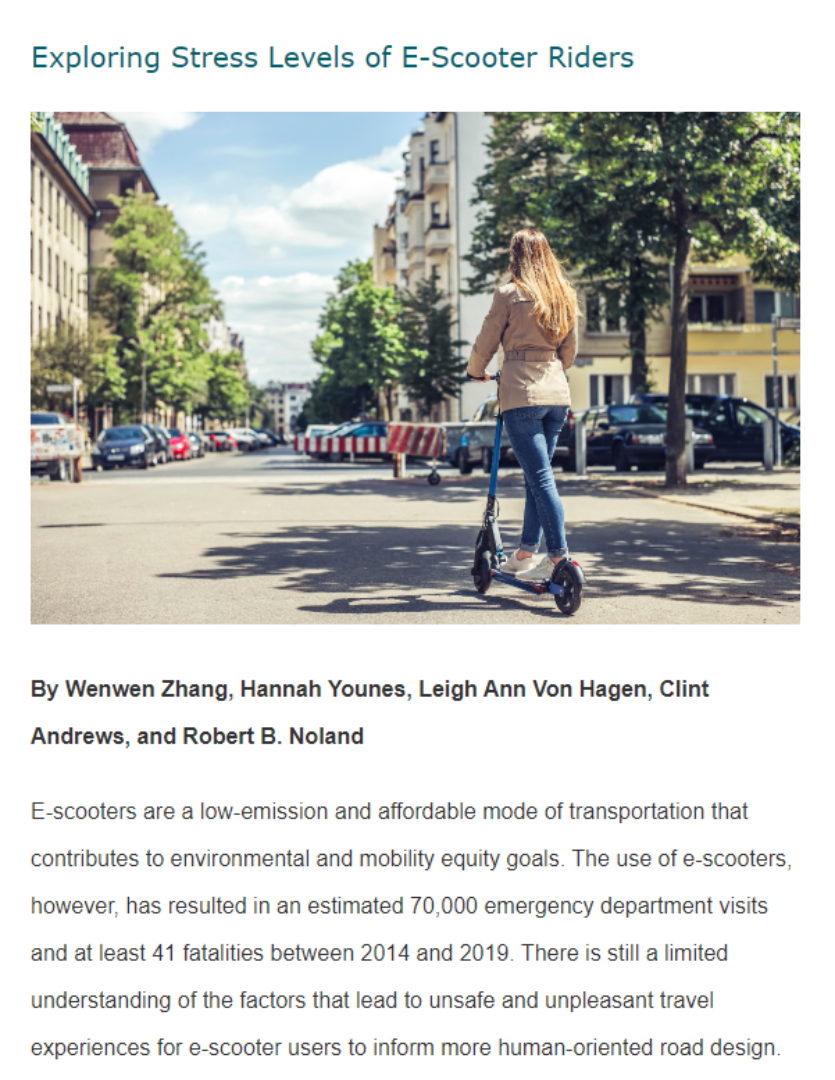
The results of this pilot data collection effort provide insights on the potential use of the latest sensor technology and computer vision algorithms to understand travel behavior for new and emerging transportation modes.
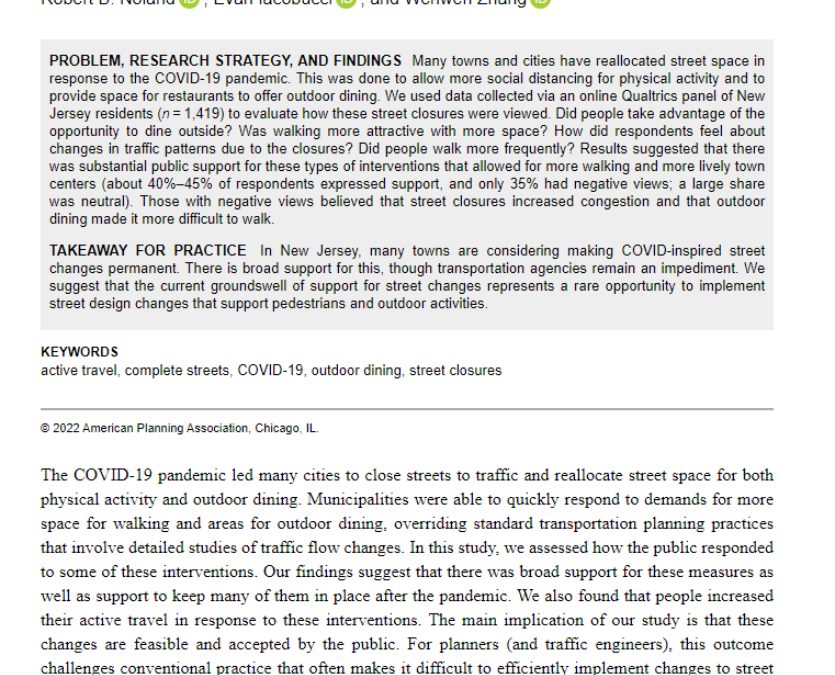
We suggest that the current groundswell of support for street changes represents a rare opportunity to implement street design changes that support pedestrians and outdoor activities.
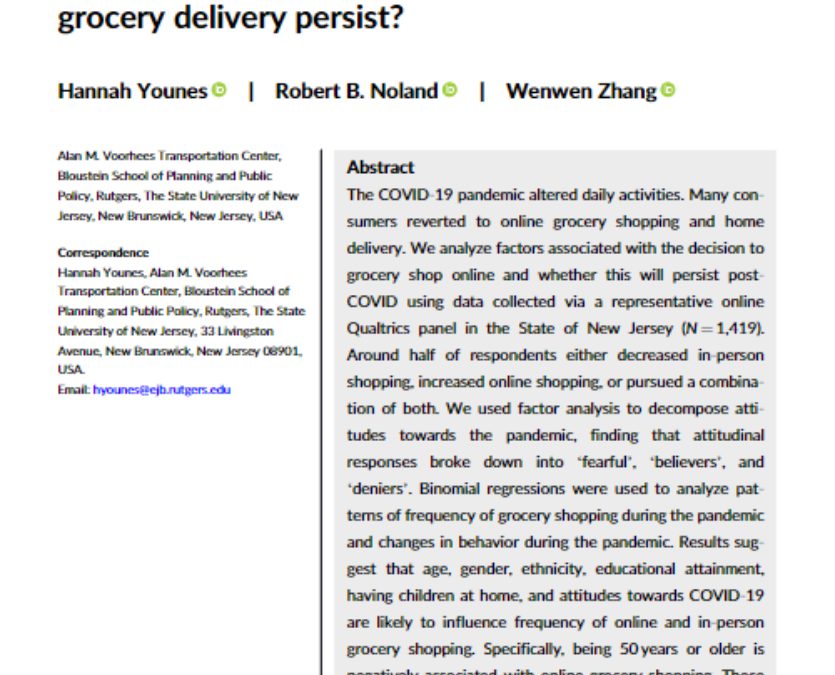
We analyze factors associated with the decision to grocery shop online and whether this will persist post-COVID using data collected via a representative online panel.
Since its creation in 1979, NJ TRANSIT has grown into the geographically largest public transit system in the United States. Over more than four decades, the agency’s financial structure has shifted in response to changing state and federal priorities—shaping service...
Objective While fatal crashes are available through the Fatality Analysis Reporting System (FARS) and are readily available to the public, many states do not make their crash data easily accessible for the public and the research community. The public has an interest...
Through this research, NJ TRANSIT sought to understand how women and members of the lesbian, gay, bisexual, transgender, queer plus community, sometimes referred to as sexual and gender minorities (SGMs) travel on NJ TRANSIT so the agency can provide better...
Recent advances in biometric sensing technologies, such as eye tracking, heart rate trackers, and galvanic skin response (GSR) sensors, offer new opportunities to measure pedestrian stress level and their travel experiences in real-time. Uncertainty remains about...